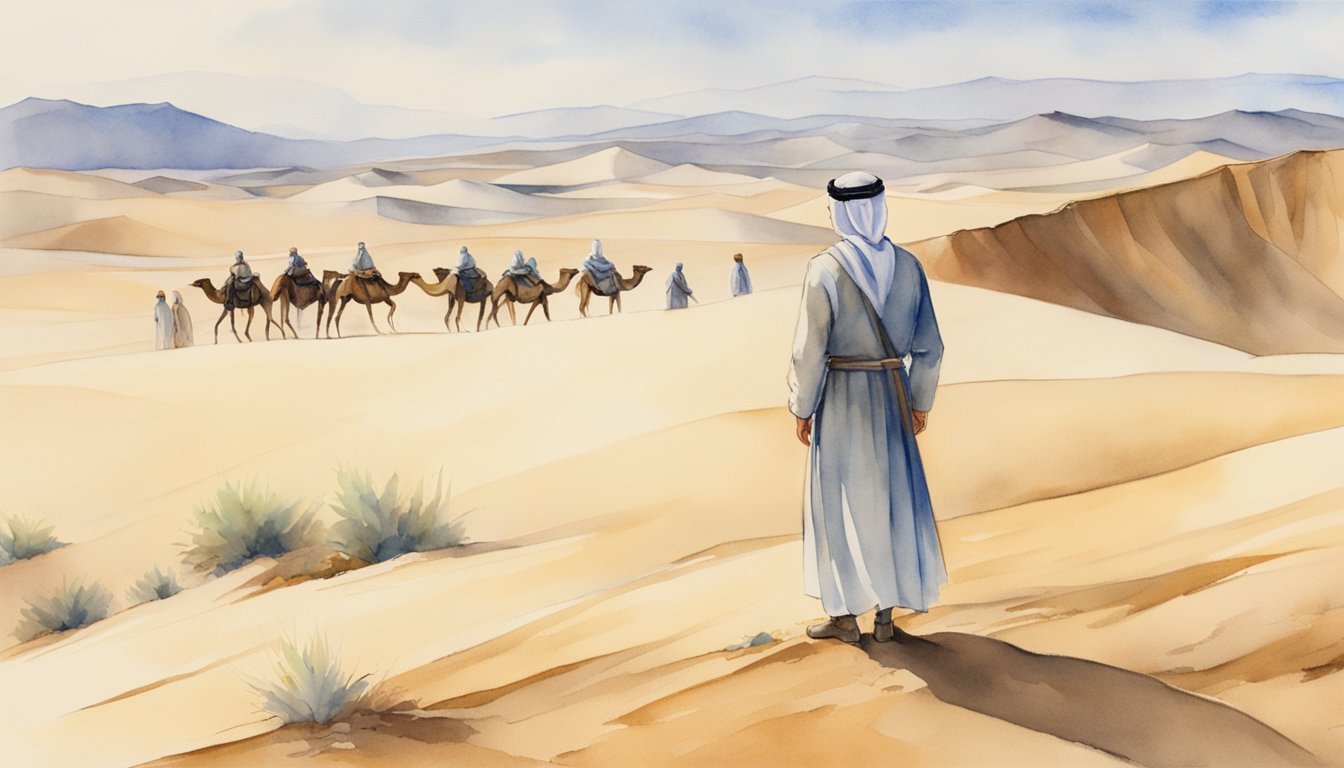Lawrence of Arabia: The Film
“Lawrence of Arabia” stands as a monumental achievement in filmmaking, weaving the story of T.E. Lawrence with grandiose cinematography and outstanding performances. Produced and released in 1962, this film marked a pinnacle in the epic adventure genre.
Production Background
Directed by David Lean and penned by Robert Bolt, “Lawrence of Arabia” is a portrayal of the enigmatic figure T.E. Lawrence and his role in the Arab Revolt during World War I. The production journey of the film was as epic as its storyline, with David Lean’s pioneering vision for widescreen cinematography taking the cast and crew to remote desert locations. This dedication to authenticity contributed to its historical and dramatic depth.
Cast and Performances
Peter O’Toole brought T.E. Lawrence to life with a performance that established him as a star. His portrayal is supported by a cast of acclaimed actors, including Alec Guinness as Prince Faisal, Omar Sharif as Sherif Ali, Anthony Quinn as Auda Abu Tayi, and Jack Hawkins as General Allenby. Additional talented cast members like Anthony Quayle, Arthur Kennedy, José Ferrer, and Claude Rains, each added depth to this immersive dramatization of history.
Cultural Impact
Upon its release, Lawrence of Arabia quickly became a benchmark for epics, having a profound impact on the filmmaking industry and audiences alike. Its combination of epic storytelling, innovative cinematography, and dynamic performances left a lasting legacy. The film not only painted a picture of the historical figure but also influenced the way sweeping historical dramas were made, setting high standards for the genre.
Historical Context of T.E. Lawrence

T.E. Lawrence’s life and work were emblematic of the complex interplay of British interests in the Middle East during the early 20th century. His participation in the Arab Revolt and his contributions to guerrilla warfare have had far-reaching consequences for both the region and military strategy.
Life of T.E. Lawrence
Thomas Edward Lawrence, born on August 16, 1888, in Tremadoc, Wales, was educated at Oxford University, where his interest in the Middle East began. Before becoming a famed military officer, he was an archaeologist and a writer, known for his detailed and vivid descriptions of his experiences. His scholarly work would lay the foundation for his later role as a British Army officer and diplomat.
Arab Revolt and Political Influence
The Arab Revolt against the Ottoman Empire during World War I was a seminal event in which Lawrence played a crucial role. As a liaison officer, he helped coordinate and support Arab forces, including those led by Sherif Ali and Auda Abu Tayi, in their fight for independence. He was a firm believer in the cause of Arab Independence and worked with key figures like Prince Faisal to achieve it, despite the conflicting interests demonstrated by the Sykes-Picot Agreement.
Military Strategy and Legacy
Lawrence’s military acumen was most clearly demonstrated in his orchestration of guerrilla tactics against the Turkish Army, including the sabotage of the Hejaz Railway and the remarkable capture of Aqaba. His strategies significantly contributed to the eventual fall of Damascus. Lawrence’s innovative approach to warfare influenced many military doctrines and his teachings remain relevant today.
Representation in Media
Lawrence’s life was dramatized in the epic film “Lawrence of Arabia,” directed by David Lean and starring Peter O’Toole as Lawrence, with Alec Guinness and Omar Sharif in supporting roles. This cinematic portrayal brought his story to a wide audience, immortalizing his figure in popular culture and shaping the general perception of his role in history.

